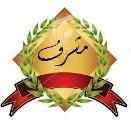Islamic Reform in the Domain of Worship - II
Worship must be free from the authority of priests
A. The previous manifestations of the divine religion were corrupted when their priests concocted many rituals and rites that were never part of Allah’s Law. These rituals enabled them to take control of the devout and affect their minds so that they were never satisfied with their own devotions. This made them dependent on the clergy in performing their prayers. They were made to believe that they needed these rituals and rites that were under the control of the priests. Islam came with everything needed to reform this situation and prevent it from reoccurring. One way it did this was to free the heart of attachment to any authority besides the authority of Allah. Every believer has a direct relationship with Allah and has no need for intermediaries.
Furthermore, taking intermediaries is considered a form of polytheism, even if these intermediaries are the noble Messengers themselves. Allah has opened the door of prayer and supplication to everyone and has ordered the believers to call on Him directly. Allah says:
“Your Lord said: Beseech Me, I will answer you. Verily those who are too proud to worship me will enter Hell.”
Allah addresses His Messenger (may the peace and blessings of Allah be upon him) saying:
“And when My worshippers ask you about me, I am nearby. I answer the supplications of those who ask when they ask of me. So they should answer Me and believe in Me, perhaps they will be rightly guided.”
The scholars’ role in Islam is merely to explain the laws of Islam. Allah says:
“Ask those who know – if you do not know – the clear signs and ******ures.”
B. Islam also frees worship from the constraints of time and place. It has made all places suitable for worship in the same way that it has opened up the way for the worshipper to call on his or her Lord directly. Allah says:
“To Allah belongs the East and the West, so wherever you turn, there is the countenance of your Lord.”
Allah’s Messenger (may the peace and blessings of Allah be upon him) said: “The Earth has been made a mosque and a source of purification for me. Anyone of my followers who has to pray should pray wherever he may be.”
This is a general rule, having no exception other than the Hajj pilgrimage that is to be performed specifically at al-Masjid al-Harâm in Mecca to rekindle the memory of Ibrâhîm (Abraham), the father of the Prophets.
Islam prescribes specific times for certain acts of worship, like the five prescribed prayers. Allah says:
“Establish prayer at the forenoon until the nightfall, and recite the dawn prayer. Verily the recitation of the dawn prayer carries special testimony."
Allah says regarding the Hajj pilgrimage:
“The Hajj is in well-known months.”
Other acts of worship can be performed at any time.
3. Islamic worship maintains a balance between body and soul
One of the ways in which the religions before Islam became corrupted is with regard to the relationship between the body and the soul. Some groups went to excess in spirituality. Others were taken completely by materialism. Islam, on the other hand, avoided these extremes and returned worship to its original, true form that balances between the material and the spiritual. It established some very important principles in this regard, such as the following:
1. Islam recognizes the needs of both the body and the soul.
Allah’s Messenger (may the peace and blessings of Allah be upon him) said:
“Your Lord has rights over you, your body has rights over you, and your family has rights over you. So give everything its right.”
Allah says:
“Seek the Hereafter with what Allah gives you, but do not forget your share of this world.”
Islam provides sustenance for the soul through worship and obedience to Allah and allows sustenance for the body by making all good things lawful.
2. Islam considers the worldly life the place to cultivate the rewards of the Hereafter.
Islam makes the primary occupation of the human being on Earth the development of all good things by which a believer benefits himself and others. Islam recognizes no dichotomy between the sacred and the secular. No does it see a conflict between this world and the Hereafter. This world is a means of earning the next, therefore we find that Allah teaches His worshippers to beseech Him in the following manner:
“Our Lord, give us the good of this world and the good of the Hereafter and save us from the punishment of the Hellfire.”
4. Islamic worship is easy and free of excessive hardship
Islam came with its Law easy in every way. It eschews the excessive hardship that can be found in the religions of the past. Allah says this in clear terms:
“Whoever is compelled, neither desiring it nor returning to it (unlawful meat), then there is no sin upon him.”
There is a well-established principle in Islamic Law: Hardship is a reason for concessions. All of the concessions found in Islamic Law fall under this principle. For example, it is permissible for a traveler to shorten his prayers and to break his obligatory fast in the month of Ramadân. Allah says:
“Allah wants ease for you and does not want hardship.”








